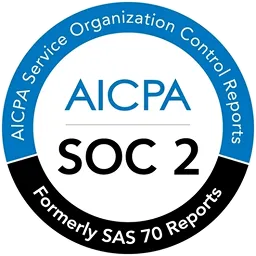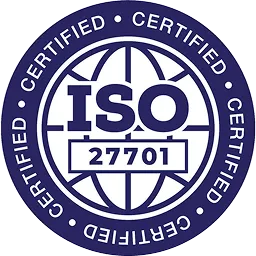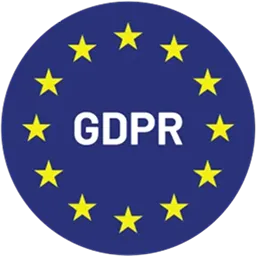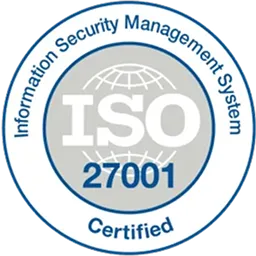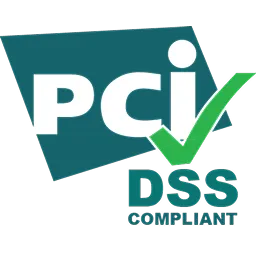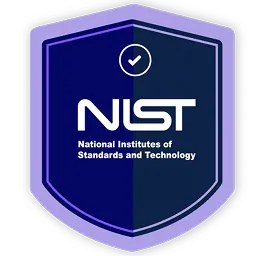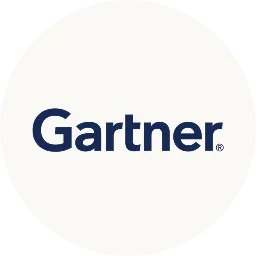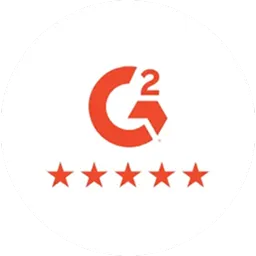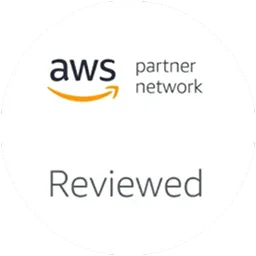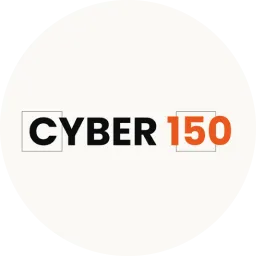On average, growing organizations manage more than 125 SaaS tools, which also involves managing their respective contracts and renewals.
These contracts are often scattered across emails, receipts, and spreadsheets among different teams. Relying on manual processes is time-consuming and prone to errors. Therefore, IT & procurement teams prioritize effective SaaS contract management.
As organizations increasingly embrace cloud-first environments, the number of SaaS contracts in their portfolios also grows. Failure to adequately review, store, and manage these crucial documents can adversely affect an enterprise.
Insufficient oversight of these SaaS contracts can lead to challenges, such as increased instances of overlooked SaaS renewals, underutilized licenses, and unnecessary SaaS expenses.
According to Zylo's report, numerous organizations significantly underestimate the number of SaaS applications operating in their environment, often by a factor of two to three. On average, enterprise businesses have over 600 SaaS applications (according to Zylo data), indicating that approximately 200 to 300 applications remain undiscovered as shadow IT.
Additionally, it reveals that organizations encounter an average of one SaaS application renewal each business day, summing up to 204 renewals annually. Managing these SaaS contracts swiftly becomes overwhelming and challenging without a strategic plan.
This guide provides comprehensive insights into SaaS contract management in 2024, explores its significance, and offers actionable steps to enhance the efficiency of your contracting processes. But before delving deep into the topic, it's crucial to understand what it entails and what challenges it solves.
SaaS Contract Management: A Quick Overview
SaaS contract management is the end-to-end process of creating, negotiating, formalizing, securely storing, and executing contracts designed explicitly for SaaS agreements. Its primary objective is to mitigate the risks associated with shadow IT while reducing unnecessary costs. This multifaceted management approach involves various strategies, including but not limited to:

- Holistic Contract Monitoring: SaaS contract management comprehensively monitors all SaaS contracts within an organization. This entails a meticulous tracking system to ensure visibility into contract details and key milestones.
- Ownership Assignment: An integral aspect of SaaS contract management is the assignment of ownership for each contract. This ensures accountability and clarity regarding who oversees and manages specific contractual obligations.
- Negotiation with Stakeholders: Engaging with stakeholders to negotiate favorable terms and conditions is crucial to SaaS contract management. This contract negotiation process seeks to align contractual agreements with organizational goals and priorities.
- Terms and Conditions Management: Beyond negotiation, managing terms and conditions within SaaS contracts is vital. This includes ensuring compliance, evaluating performance metrics, and adapting contract terms to evolving business needs.
- Customized Strategies: SaaS Contract Management recognizes the diversity of approaches required for different contracts. It involves tailoring strategies based on each SaaS contract's specific characteristics and requirements, creating a customized and effective management framework.
SaaS contract management is a proactive approach beyond mere oversight, actively engaging with contracts to optimize their value and align them with organizational objectives. Thus ultimately enhancing the overall efficiency of SaaS contract portfolios.
Importance of SaaS Contract Management
SaaS contract management plays a pivotal role in the success of businesses by ensuring the effective handling of contractual agreements. This significance stems from its impact on securing recurring revenue streams, retaining customers, and fostering predictability in financial outcomes.
A well-managed SaaS contract framework is a proactive approach that contributes to streamlined operations, reduced churn rates, timely renewals, and accelerated sales cycles. In essence, the importance lies in navigating the complexities of contracts to optimize revenue and fortify customer relationships.

SaaS Contract Management is essential for several crucial reasons:
- Financial Control: Efficient management of SaaS contracts ensures clarity in financial transactions. It allows businesses to control costs, track expenditures, and budget effectively, contributing to overall financial stability and success.
- Compliance and Risk Mitigation: Proper SaaS contract management ensures compliance with legal and regulatory requirements. By mitigating risks associated with non-compliance, businesses can avoid legal disputes, financial penalties, and reputational damage.
- Optimized Performance: Effective management of SaaS contracts is key to optimized performance. It streamlines processes, enhances stakeholder communication, and facilitates the seamless execution of contractual obligations, improving overall operational efficiency.
Having grasped the significance, let's delve into some compelling advantages of SaaS contract management.
Benefits Of SaaS Contract Management
Amidst the current tech evolution, organizations strategically embrace SaaS contract management as a crucial tool for handling complex contracts. When paired with SaaS management tools and systems as the official record system and employed proactively, SaaS contract management delivers various concrete advantages:

- Time Efficiency: Effectively managing SaaS contracts involves centralizing relevant contract information in a reliable system of record. This minimizes the time spent searching for crucial details such as total contract value, software features, benefits, and the overall count of licenses or users.
- Financial Savings: Regularly reviewing existing SaaS contracts leads to substantial cost savings. For instance, scrutinizing the total users specified in contract agreements and comparing them to the actual user base enables rightsizing of licenses during the next contract renewal (or earlier) for net savings.
- Improved Collaboration and Communication: Streamlined management of SaaS contracts fosters improved collaboration and communication within the organization. A centralized platform ensures that relevant stakeholders have access to accurate and up-to-date information, promoting synergy in decision-making and operational processes.
- Enhanced Visibility and Control Over Contract Lifecycles: Implementing a comprehensive SaaS contract management system provides heightened visibility into the various stages of contract lifecycles. This increased transparency allows for better tracking, monitoring, and strategic planning throughout the entire contract duration.
- Reduction of Manual Errors and Improved Accuracy: Automation and centralization inherent in a contract management platform significantly reduce the occurrence of manual errors in managing contract-related information. This results in improved accuracy, minimizing the risk of discrepancies and enhancing the overall reliability of the contract management process.
- Avoiding Surprise Renewals: A centralized SaaS contract management system should feature a renewal calendar displaying each SaaS application's renewal date and the planned notification period. Utilizing a SaaS management platform like Zluri allows users to schedule alerts well in advance, facilitating strategic planning for software renewals.
- Minimized SaaS Redundancy and Duplication: Having comprehensive contract details enables a quick overview of the applications currently utilized in your SaaS inventory. IT teams can use this information to inform future software acquisition decisions and avoid redundant and duplicate applications.
How Does SaaS Contract Management Help in Cost Optimization?
Presented below are essential insights into how SaaS contract management plays a pivotal role in optimizing costs:

- By Streamlining Contract Administration
SaaS Contract Management automates tedious and repetitive tasks associated with contract administration, reducing reliance on manual intervention. This automation enhances efficiency and mitigates the risk of errors, ensuring precise contract management and eliminating potential financial discrepancies.
- By Providing Real-Time Visibility and Informed Decision-Making
It gives organizations real-time visibility into crucial contract details, including terms, conditions, and milestones. This timely access empowers proactive contract management, preventing oversights that could result in unnecessary costs.
- By Facilitating Precise Resource Allocation
Contract management facilitates precise resource allocation by centralizing contract information and highlighting critical dates such as renewals and terminations. This functionality prevents overcommitting resources and ensures organizations seize opportunities for cost-saving measures.
- By Having a Strategic Vendor Relationship Management
Proper SaaS contract management helps you centralize contract data to support data-driven negotiations with vendors, resulting in more favorable terms. This optimized vendor relationship management contributes to effective cost-negotiation strategies and improved financial outcomes.
- By Alerting With Timely Renewals and Compliance Assurance
SaaS Contract management software tools send automated alerts and notifications for upcoming contract renewals, minimizing the risk of missing renewal dates. This feature ensures compliance with contractual obligations, thus avoiding penalties and associated costs.
- By Providing Efficient Data Storage and Retrieval
Contract management helps you leverage cloud-based SaaS solutions for cost-effective data storage, eliminating the need for extensive physical infrastructure. This streamlined contract management process facilitates efficient retrieval of contract information, reducing the time and resources spent searching for critical data.
- By Facilitating Informed Decision-Making with Advanced Analytics
Contract management offers robust analytics and reporting tools for comprehensive contract performance analysis. Facilitating data-driven decision-making, these tools assist organizations in identifying cost-saving opportunities and optimizing their contract portfolios.
- By Promoting Scalability and Adaptive Flexibility
SaaS Contract Management solutions are inherently scalable, accommodating organizations' evolving needs without requiring significant upfront investments. This inherent flexibility enables seamless adaptation to changing business dynamics, ensuring sustained cost optimization.
Incorporating SaaS Contract Management into business processes goes beyond organizational efficiency; it becomes a catalyst for cost optimization, fostering agility and informed decision-making in the ever-evolving contract management landscape.
Now that you know the advantages, let's explore the critical challenges and the importance of SaaS contract management in the present day.
Challenges SaaS Contract Management Addresses

While the benefits of SaaS contract management are substantial, the challenges it addresses are equally significant. In the evolving landscape of digital solutions, organizations grapple with many complexities in managing SaaS contracts. These challenges, from scattered contract data to the risks of oversight and compliance issues, underscore the critical need for robust SaaS contract management.
1. High Contract Volumes
Organizations often find themselves grappling with the daunting task of handling many contracts. SaaS contract management steps in as the key solution, streamlining the management of a large volume of contractual agreements.
For instance, imagine a multinational corporation with numerous vendors and service providers, each requiring a separate contract. Without effective management, this sheer volume can lead to inefficiencies, oversights, and potential financial risks.
2. Multi-Cloud and Hybrid Environments
Many organizations operate in multi-cloud or hybrid environments, utilizing services from various cloud providers. Managing contracts across these diverse environments can be intricate and challenging. SaaS contract management enables you to provide a unified view of contracts spanning different cloud services, ensuring comprehensive oversight.
Picture a scenario where an organization uses one SaaS provider for customer relationship management (CRM) tools, another for storage solutions, and a third for communication platforms. Proactive SaaS contract management helps you seamlessly integrate and manage contracts from each provider, facilitating centralized control and optimization of the entire SaaS landscape.
3. Intricate Pricing Models
In the contemporary business world, pricing structures for SaaS solutions can be intricate and detailed. SaaS contract management is crucial in navigating these complexities, ensuring organizations can effectively handle sophisticated models defining costs and terms.
Consider a scenario where a company adopts a SaaS solution with tiered pricing based on user numbers, storage, and additional features. Comprehending and managing such intricacies becomes vital to avoid unnecessary expenses and optimize budget utilization.
4. Renewal of SaaS Contracts
Renewal processes for SaaS contracts are often intricate and require careful management to ensure a seamless continuation of services. SaaS contract management addresses the challenge of renewing agreements by providing tools to manage the process efficiently.
For example, suppose your team relies on a critical SaaS application for daily operations. Without an effective system in place, overlooking the renewal date could lead to service interruptions, impact productivity, and potentially incur penalties or higher renewal costs.
5. Compliance and Regulatory Changes
The evolving landscape of compliance requirements and regulatory changes poses a significant challenge for organizations managing SaaS contracts. Various contract management systems must address this by updating the latest legal standards and automatically incorporating necessary adjustments.
For instance, consider a scenario where a general data protection regulation is amended, impacting the terms under which SaaS providers handle sensitive information. SaaS contract management ensures contractual agreements align with the revised regulatory framework, mitigating legal risks and potential penalties.
Thus, SaaS contract management plays a pivotal role in addressing the multifaceted challenges that IT teams encounter in managing contractual agreements. Providing efficiency, transparency, and security contributes significantly to modern enterprises' overall success and sustainability.
Now that you understand the significance and challenges of SaaS contract management for your organization, here are some best practices to overcome the challenges and revolutionize your approach.
Best Practices for SaaS Contract Management

Let's delve into each SaaS contract best practices, exploring real-world examples and showcasing the benefits they bring to the overall contract management process:
1: Establish Clear Contract Clarity
This involves thoroughly and precisely articulating contract terms, conditions, and expectations. The goal is to eliminate any potential for ambiguity and ensure that all stakeholders share a common understanding. This clarity minimizes the risk of misinterpretation, promoting smoother collaboration and reducing the likelihood of disputes.
2: Centralize Contact Information
Centralizing and organizing contact details streamlines communication channels. This involves creating a centralized repository for all relevant parties engaged in contract management. The organized structure facilitates easy access to contact information, fostering efficient collaboration and communication among team members.
3: Prioritize Data Security and Privacy

Instilling confidence in stakeholders requires a strong emphasis on stringent data security measures. This includes compliance with privacy regulations to safeguard sensitive information. By prioritizing security, organizations protect their data and uphold the highest standards of confidentiality, building trust among stakeholders.
4: Provide Adequate Training
Empowering users engaged in SaaS Contract Management involves offering comprehensive training programs. This ensures that users understand the system's functionalities and capabilities proficiently. Adequate training enables users to maximize the platform's potential, promoting effective and knowledgeable utilization.
5: Set Usage Limitations
Optimizing resource utilization is achieved by defining and enforcing usage limitations within contracts. This proactive measure prevents overcommitment of resources, aligning usage with the contract terms. By doing so, organizations minimize the risk of potential cost overruns and ensure efficient resource management.
6: Utilize Usage and Renewal Alerts
.webp)
Fostering proactive decision-making involves implementing automated alerts for usage patterns and upcoming renewals. These alerts serve as early indicators, allowing teams to respond promptly. By preventing lapses and mitigating the potential for increased costs, organizations maintain control over their contract obligations and financial commitments.
7: Facilitate Stakeholder Collaboration
Cultivating a culture of transparent communication and shared responsibility among stakeholders is vital for successful contract outcomes. Encouraging collaborative efforts ensures that all relevant parties are actively engaged in the contract management process. This collaboration enhances communication, mitigates misunderstandings, and promotes a unified approach to achieving contract objectives.
8: Regularly Evaluate Contract Details
Ensuring ongoing relevance, compliance, and alignment with evolving business objectives involves periodic reviews and evaluations of contract details. This practice guarantees that contracts remain dynamic and supportive of organizational goals. Regular evaluations provide insights for necessary adjustments, ensuring that contracts continue to meet the evolving needs of the business.
9: Opt For Contract Management Tools
Organizations should leverage automated contract management tools to boost efficiency and accuracy in contract management processes. These tools help streamline repetitive tasks, reducing the likelihood of manual errors. One such tool is zluri. It offers a streamlined approach to managing all your SaaS contracts in one centralized location. With Zluri, you can feel confident in your contract management, knowing that the tool is designed to simplify and streamline your processes.
The platform delivers essential insights about your contracts. These insights include total contracts, applications, contract values, annualized costs, license type, end date, payment method, and more. This significantly simplifies contract renewals, audits, and daily contract-related tasks. By consolidating critical information into a centralized contract and metadata repository, Zluri's platform revolutionizes contract management.
With these best strategies in mind, IT teams can significantly enhance their SaaS contract management & renewal practices. However, imagine a solution that goes beyond mere guidance – introducing Zluri. This powerful tool is designed to autonomously handle every aspect of SaaS contract management, eliminating the need for manual intervention. With Zluri, you can feel secure in the knowledge that your contract management is in capable hands, allowing you to focus on other critical tasks.
Master SaaS Contract Management With The Right Tools
To sum up, mastering SaaS contract management requires leveraging the right tools. With the proper tools and technologies in place, organizations can streamline their contract processes, enhance efficiency, and ensure compliance. By utilizing advanced contract management platforms like Zluri, organizations can centralize their contract data, gain valuable insights, and improve collaboration across teams. Furthermore, IT teams can confidently navigate the complexities of SaaS contracts, ultimately driving success and maximizing value from their software investments.






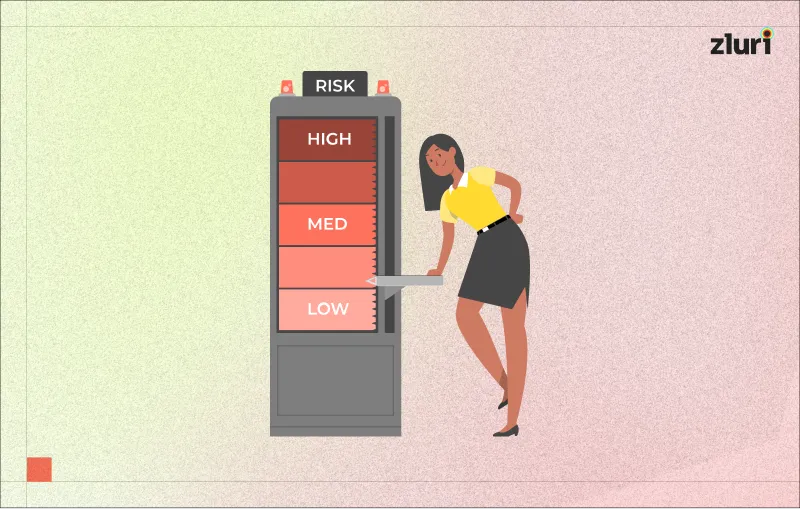


.svg)



